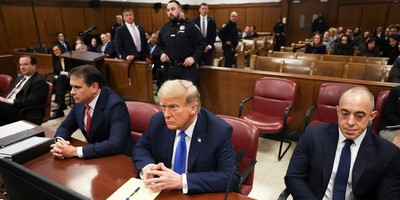Correction: A previous version of this post stated TSA workers were on the terrorism list. That is not factual. TSA has lists of airport and aviation workers who have alleged ties to terrorism, not TSA workers themselves. I regret and apologize for the error.
After ISIS downed a Russian airliner and carried out multiple attacks on Paris over the past four weeks, the conversation about national security continues in the United States, with airport vulnerability playing a large role in the debate.
According to multiple reports and photographic evidence, ISIS worked with a local airport baggage handler at
Sharm el-Sheikh International Airport in Egypt to plant a soda can bomb on the plane.
NEW: ISIS claims bomb hidden in soda can took down Russian plane: https://t.co/MLh78pF0fN pic.twitter.com/LqlevGwppw
— ABC News (@ABC) November 18, 2015As I've written before, here at home TSA agents have repeatedly failed 95 percent of undercover bomb and weapons tests. In addition, this report from June shows dozens of aviation workers are actually on the U.S. terrorism watch list.
A recent U.S. Transportation Security Administration (TSA) report found that 73 aviation workers, employed by airlines and vendors, had alleged links to terrorism.
The report, published by the Department of Homeland Security (DHS) Office of Inspector General on June 4, blamed bureaucratic mistakes. Though the TSA says it frequently cross-checks applications and employee lists with the DHS’s “Consolidated Terrorist Watchlist,” both are incomplete.
The TSA’s employee lists, which consist of thousands of records, “contained potentially incomplete or inaccurate data, such as an initial for a first name and missing social security numbers,” the report found. The DHS Consolidated Terrorist Watchlist was also incomplete because “[TSA] is not authorized to receive all terrorism-related categories under current interagency watchlisting policy.”
Recommended
In September, DHS Inspector General John Roth testified about the lack of improvement on major security gaps at the agency.
"In September 2015, we completed and distributed our report on our most recent round of covert testing. The results are classified at the Secret level, and the Department and this Committee have been provided a copy of our classified report...While I cannot talk about the specifics in this setting, I am able to say that we conducted the audit with sufficient rigor to satisfy the standards contained within the Generally Accepted Government Auditing Standards, that the tests were conducted by auditors within our Office of Audits without any special knowledge or training, and that the test results were disappointing and troubling," Roth said during testimony in front of the House Oversight Committee. "We ran multiple tests at eight different airports of different sizes, including large category X airports across the country, and tested airports using private screeners as part of the Screening Partnership Program. The results were consistent across every airport. Our testing was designed to test checkpoint operations in real world conditions. It was not designed to test specific, discrete segments of checkpoint operations, but rather the system as a whole. The failures included failures in the technology, failures in TSA procedures, and human error. We found layers of security simply missing. It would be misleading to minimize the rigor of our testing, or to imply that our testing was not an accurate reflection of the effectiveness of the totality of aviation security."























Join the conversation as a VIP Member